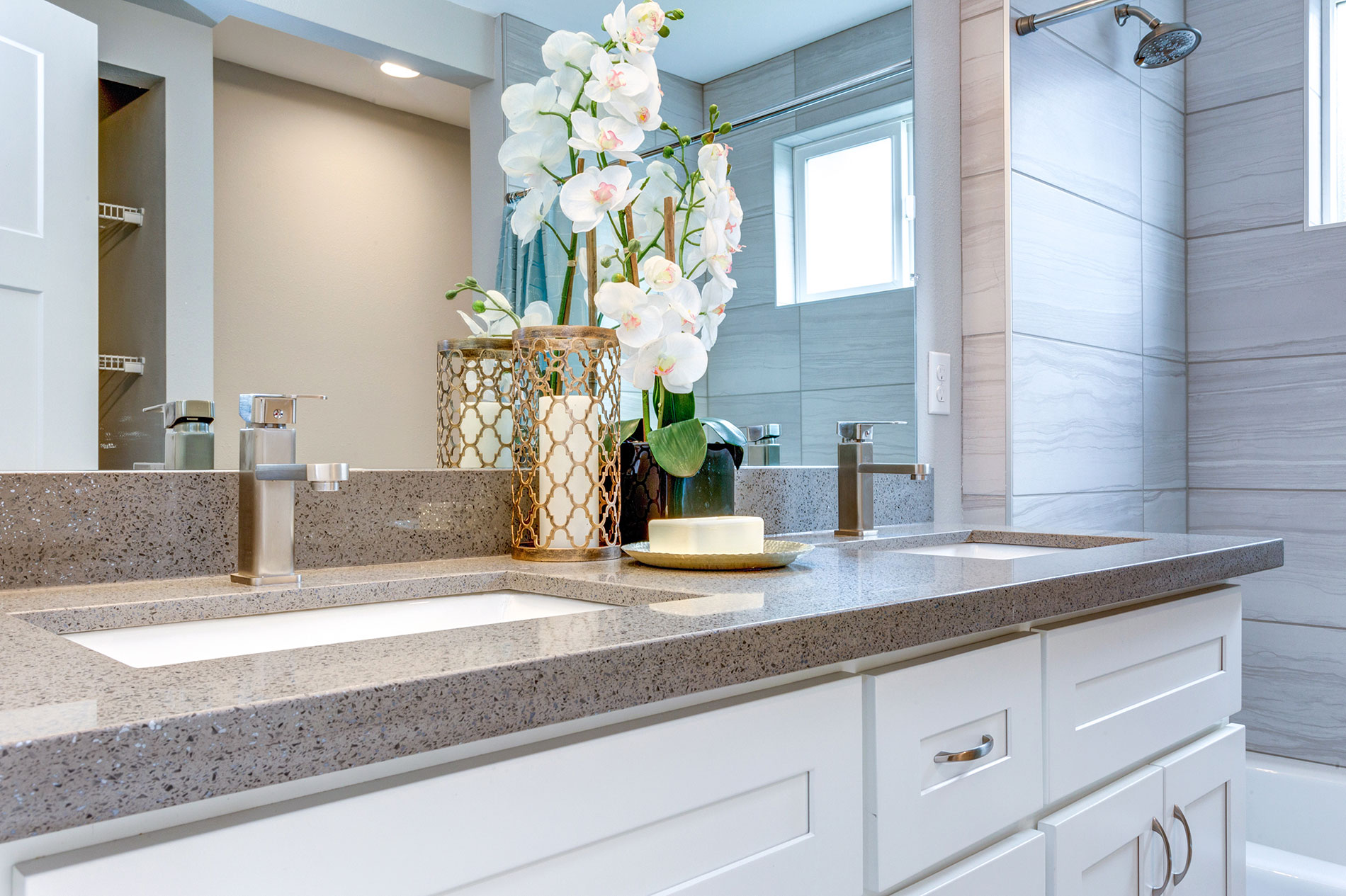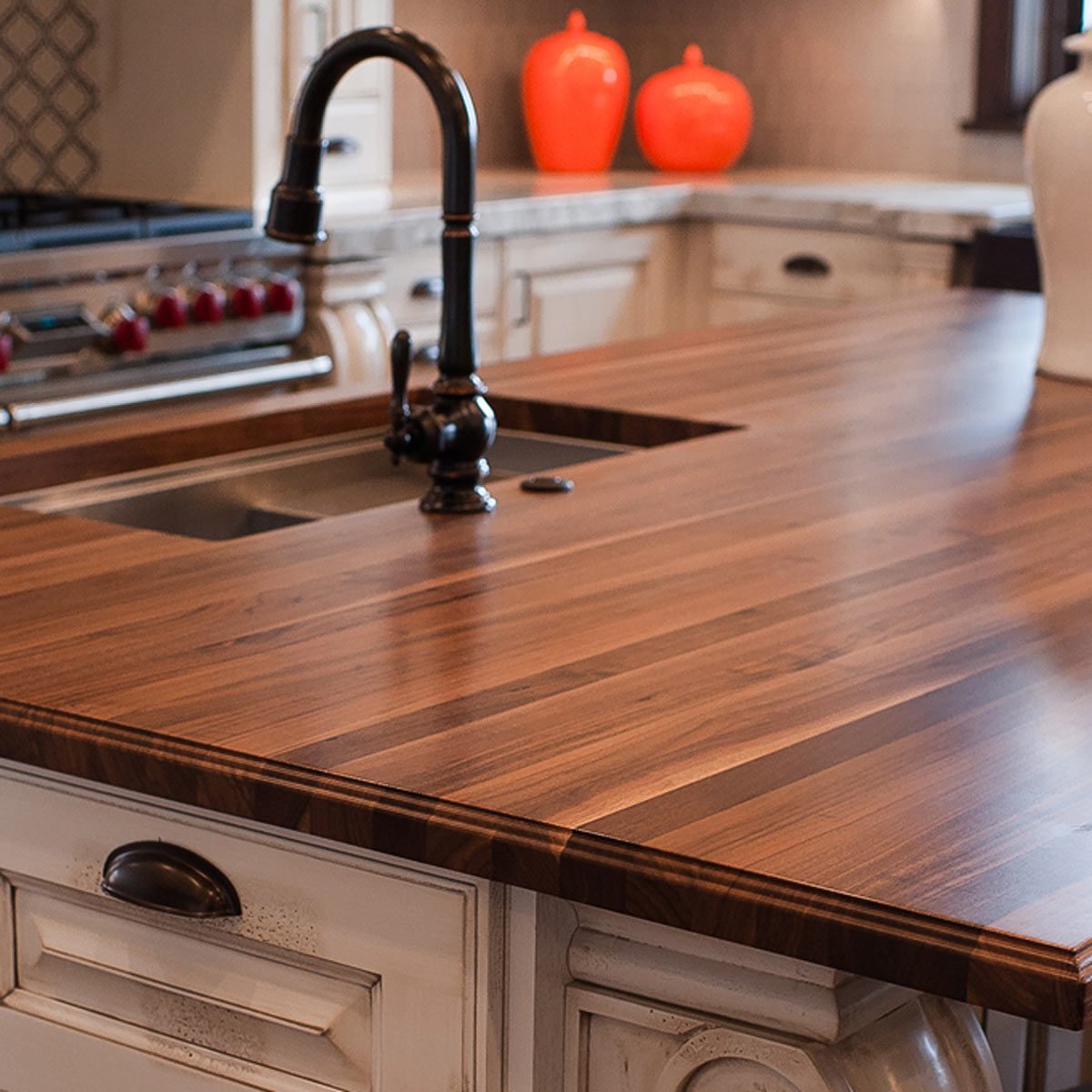Countertops material options are vast, and selecting the right one can elevate your kitchen’s style and functionality. From durable quartz to elegant granite, each material offers unique advantages. Let’s delve into the world of countertops and explore the options that suit your needs and aspirations.
The myriad of colors, patterns, and textures available in countertop materials empowers you to create a kitchen that reflects your personal style. Whether you prefer a classic granite countertop or a modern quartz design, there’s an option to complement your cabinetry, flooring, and backsplash.
Material Types and Durability
Countertops are a crucial element in any kitchen, not only for their functionality but also for their aesthetic appeal. Choosing the right countertop material is essential for durability, style, and overall kitchen design. Here’s a comprehensive guide to the different types of countertop materials and their durability.
Quartz
Quartz countertops are engineered from a combination of natural quartz and resins, resulting in a highly durable and non-porous surface. They are resistant to scratches, heat, and stains, making them ideal for busy kitchens. Quartz countertops come in a wide range of colors and patterns, allowing for customization to match any kitchen style.
Granite
Granite is a natural stone known for its durability and timeless beauty. Granite countertops are resistant to heat and scratches, but they can be prone to staining if not properly sealed. Granite offers a wide range of colors and patterns, from classic black to vibrant reds and greens, making it a versatile choice for traditional and modern kitchens.
Laminate
Laminate countertops are made from a durable plastic laminate bonded to a substrate material. They are available in a wide range of colors, patterns, and textures, including realistic wood and stone finishes. Laminate countertops are budget-friendly and easy to maintain, but they are not as heat-resistant as quartz or granite.
Aesthetics and Design Options

Countertops serve as both functional and decorative elements in a kitchen. They come in a wide range of colors, patterns, and textures, allowing homeowners to customize their space to suit their personal style and décor. The choice of countertop material can significantly impact the overall aesthetics of the kitchen, complementing or contrasting with the cabinetry, flooring, and backsplash.
Colors and Patterns
Countertop materials are available in a vast array of colors, from classic neutrals like white and black to vibrant hues like blue, green, and red. Natural stone materials, such as granite and marble, often feature unique veining and patterns that add visual interest to the space.
Quartz and solid surface materials, on the other hand, offer a more uniform appearance with a wide selection of colors and patterns to choose from.
Textures
In addition to colors and patterns, countertops also come in various textures. Smooth, polished surfaces create a sleek and modern look, while honed or textured surfaces add depth and character to the space. Rough-hewn or antiqued finishes can give a kitchen a rustic or industrial feel.
The texture of the countertop should be considered in relation to the other elements in the kitchen, such as the cabinetry and flooring, to create a cohesive and balanced design.
Complementary Elements
The choice of countertop material should complement the overall design scheme of the kitchen. For example, a light-colored countertop with subtle veining can create a bright and airy feel when paired with white cabinetry and a light-colored backsplash. A dark-colored countertop with bold patterns can add drama and sophistication to a kitchen with dark wood cabinetry and a patterned backsplash.
By considering the colors, patterns, and textures of the countertop in relation to the other elements in the kitchen, homeowners can create a cohesive and visually appealing space.
Installation and Maintenance: Countertops Material Options

The installation process for countertops varies depending on the material chosen. Some materials, such as granite and quartz, require professional installation, while others, such as laminate and butcher block, can be installed by DIYers. Once installed, countertops require regular maintenance to keep them looking their best.
This includes cleaning, sealing, and repairing any damage.
Installation
- Granite and Quartz:These materials are heavy and require professional installation. The installer will cut the countertop to size and shape, and then install it using a specialized adhesive.
- Laminate:Laminate countertops are made from a thin layer of plastic that is bonded to a substrate. They are relatively easy to install and can be done by DIYers. The installer will cut the countertop to size and shape, and then glue it to the substrate.
- Butcher Block:Butcher block countertops are made from wood. They are relatively easy to install and can be done by DIYers. The installer will cut the countertop to size and shape, and then seal it with a food-safe finish.
Maintenance
Once installed, countertops require regular maintenance to keep them looking their best. This includes cleaning, sealing, and repairing any damage.
- Cleaning:Countertops should be cleaned regularly with a mild detergent and water. Avoid using harsh chemicals or abrasive cleaners, as these can damage the surface of the countertop.
- Sealing:Natural stone countertops, such as granite and marble, should be sealed regularly to protect them from stains and scratches. The frequency of sealing will vary depending on the type of stone and the amount of use it gets.
- Repairing:Any damage to a countertop should be repaired as soon as possible to prevent further damage. Small scratches and chips can be repaired with a repair kit. Larger cracks or breaks may require professional repair.
Cost and Value

Countertop materials vary significantly in cost, influenced by factors such as durability, aesthetics, and availability. Understanding the value proposition of each material is crucial for informed decision-making.
Cost Ranges
- Laminate:$20-$60 per square foot
- Solid Surface:$40-$100 per square foot
- Quartz:$50-$200 per square foot
- Granite:$50-$150 per square foot
- Marble:$60-$200 per square foot
Factors Influencing Cost, Countertops material options
Several factors contribute to the price of countertops:
- Material Type:Natural stone materials like marble and granite are generally more expensive than engineered materials like quartz and solid surface.
- Thickness:Thicker countertops require more material and labor, leading to higher costs.
- Edge Profile:Decorative edge treatments, such as bullnose or ogee, can increase the price.
- Installation:Complex installations, including undermount sinks or waterfall edges, can add to the overall cost.
- Availability:Rare or exotic materials may be more expensive due to limited supply.
Concluding Remarks

Choosing the right countertop material is an investment that will enhance your kitchen’s beauty and functionality for years to come. By considering factors such as durability, aesthetics, and cost, you can make an informed decision that aligns with your lifestyle and budget.
Whether you opt for the timeless elegance of granite or the low-maintenance appeal of laminate, the perfect countertop awaits your selection.
